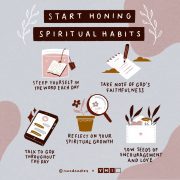100 Humans: 5 Ways to Handle Criticism and Praise
Image taken from Netflix
Written By Lily Lin, Hong Kong
What works better, criticism or praise? A recent Netflix series “100 Humans” put this to test in one of its episodes where 16 randomly selected participants were asked to learn a new skill—the lost art of plate spinning—in two hours, and then judged on their performance by their coach, Fantastic Patrick.
The twist was that before each performer went on stage, Patrick would pick a ball from an opaque box holding a total of eight blue balls and eight red balls. A blue ball meant that he should praise the performer, while a red ball meant that he had to criticize the performer—no matter how well or badly they performed. After his first round of critique, all of them had several hours to improve their skills before trying again a second time.
In the first round, Human #40, who was described by the narrator as “a natural-born plate spinner,” did a great job by getting 11 out of 15 points. But according to the rules, Patrick had to criticize her. You can imagine how disappointed she was when Patrick described her performance as “lazy” and questioned where the flair was. In the second round, she came back to the stage with less confidence and ended up scoring 10 points, one point less than the last time.
On the other hand, Human #15, did a poor job in the first round, getting only two points. But Patrick praised her, saying she did a “really good job,” adding that she had “a lot of potential.” Interestingly, in the second round, she improved significantly and ended with a score of 12 points.
The experiment concluded with the hosts announcing that the group of participants who received praise in the first round had significantly improved their performance in the second round with their scores increasing by 5.2 per cent, while the other group of performers who received criticism saw their scores decreasing by 2.2 per cent.
Watching that episode showed me the practical value of offering praise over criticism to help another person’s development, and also got me thinking about how we as believers of Jesus Christ ought to handle criticism and praise.
Here are five lessons I’ve personally found helpful.
1. Learn from helpful and valid criticism
Naturally, all of us prefer praise to criticism. But Proverbs 27:5, a favorite verse of mine, reminds us that “Better is open rebuke than hidden love.” A similar thought is expressed in Proverbs 15:31, “Whoever heeds life-giving correction will be at home among the wise.” When we sin or make mistakes, honest and reasonable criticism can help us realize how wrong we are, which is often the first step for us to repent or put things right.
There is a popular Chinese saying that goes, “The onlooker sees more of the game.” People around us can sometimes see things more clearly and give us valuable feedback that can help us grow. I was once gently criticized by my superior about the way I gave comments on the work of some of my colleagues. Although it was not easy to accept those negative comments, mulling on the feedback helped me learn how to communicate with others in a better way. Looking back, I’m thankful that he pointed that out to me.
2. Don’t be misled by rash and invalid criticism
Having said that, not all criticism may be valid. Some people tend to criticize others just because they’ve been on the receiving end of criticism by their parents or other authority figures in their life. And sometimes, people comment carelessly and unfairly because they’ve misunderstood our words or behavior, or because they have their own agenda—like Patrick in “100 Humans,” or an employer who, facing financial stress, wants to get an employee to voluntarily leave the company.
If we take to heart all the criticism we receive, we might be misled, just like Human #40 who ended up thinking that her own performance was “not good” because of the harsh criticism she received. Therefore, it is important to analyze the criticism we receive rationally and think “with sober judgment” (Romans 12:3). As Proverbs 14:15 says, “The simple believe anything, but the prudent give thought to their steps.”
3. Don’t get hurt by excessive and harmful criticism
In some cases, criticizing others could become a form of verbal abuse. The abuser, who usually holds a higher position at the workplace or in a marriage, tends to use harsh language to insult or harm the victim, lowering his or her self-esteem. Being regularly verbally bullied by the abuser, the victim may lose his or her self-confidence and start to doubt his or her own ability and value, which could cause many emotional and even physical problems. No wonder the Bible says, “The words of the reckless pierce like swords” (Proverbs 12:18).
Unfortunately, some victims end up believing that it is God’s will for them to stay in a verbally abusive relationship to “grow in their sufferings”, fearing that they might be “disobeying God” if they keep a distance from the abusers. But our loving God is good and it is not His will for us to stay in a harmful relationship to allow our self-esteem to be destroyed by excessive harsh words that are not valid.
As King David says, “The Lord is close to the brokenhearted and saves those who are crushed in spirit” (Psalm 34:18). And the Bible has made it clear that it is God’s desire for us to “encourage one another and build each other up” (1 Thessalonians 5:11). In Proverbs 22:24, we are also instructed this way: “Do not make friends with a hot-tempered person, do not associate with one easily angered.”
Therefore, if you’ve been verbally abused by someone and even start to struggle with depression or other emotional problems, please be on the alert. Even if you might not be brave enough to confront the abuser to stop him or her from wronging you, you may seek help from others who can support and pray for you.
4. Receive praise with a grateful heart
It is not uncommon for people to encourage us with compliments such as “you cook well” (though we may just be beginners in cooking). In the past, when I was praised in that way, I would feel a little embarrassed and unsure of how to react. In my culture, we have the tendency to brush off the compliment and explain why we don’t deserve it, especially if our self-esteem is low or we want to give others an impression of modesty.
But now I have learned to accept that kind of praise with a smiling face and a grateful heart, allowing myself to be motivated and encouraged to keep growing in Christ by God’s grace. As Susan Mitchell, the author of Be Bold! And Discover the Power of Praise, puts it, “Normally, if you are embarrassed by receiving praise, you are also reluctant to give it.” Let us learn to receive praise from others so that we can graciously give it to others.
5. Give “God-centered praise”
Some Christians argue that because God alone is the One we should praise, we should refrain from praising people. But author Sam Crabtree rightly points out in one of his articles, “To affirm people well is to affirm the work of God in them, and God is at work everywhere . . . If we seek for his work, we can find it.”
In other words, it is possible for us to praise people in “a God-centered way,” where we carefully observe God’s work and affirm it in those we praise. Perhaps it is the faithful hard work of a colleague who is trying to master some new skills, or the loving gesture from a husband who offers to wash the dishes.
Crabtree shares that we can also praise others “for being godly, for being Christlike, by commending them for God’s glory, applauding them for doing something good in the strength God supplies (1 Peter 4:11).” In fact, when we affirm people in this way, we are “building others up” and our words would “benefit those who listen” (Ephesians 4:29). In addition, we ourselves are also blessed. Every time we affirm others of the work of God in them, we are reminded of God’s will for us to become more like Jesus.
My friends, words are powerful tools as well as terrible weapons. Let’s ask God to help us use them wisely in the way we praise or criticize in our everyday life. If we use them in a godly way, they serve as instruments to build us up as we grow together in the Word of God. But if we misuse them, they can greatly harm each of us and even destroy the unity of the body of Christ.










Thank you so much for this insightful article, Lily. I praise the Lord for giving you wisdom and using you mightily for His glory!
Day Day, thank you for your kindness and encouragement! ❤
What a great article. I stumbled upon it, because that episode was quite impactful and I was searching for the specific episode number. Really appreciate your relating it to Christian values and scriptue!